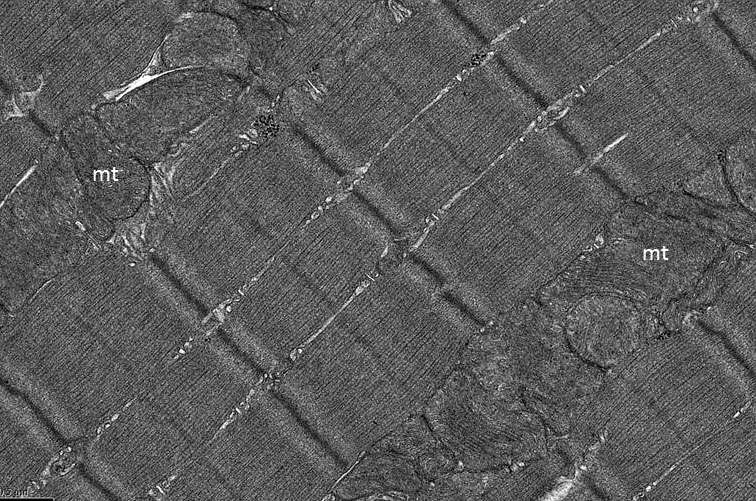Nutritional supplement boosts muscle stamina in animal studies

The benefits of exercise are well known, but physical fitness becomes increasingly difficult as people age or develop ailments, creating a downward spiral into poor health. Now researchers at Duke Medicine report there may be a way to improve exercise tolerance and, by extension, its positive effects.
Reporting in the July 7 issue of the journal Cell Metabolism, the research team describes a small molecule and its metabolic pathway that work together to optimize energy use in exercising muscles. In mouse studies, animals that received a nutrient supplement that increased activity of this pathway ran longer and farther than those that were not supplemented.
"We don't know yet if these results will hold true in humans," said senior author Deborah Muoio, Ph.D, director of basic research at the Duke Molecular Physiology Institute and Sarah W. Stedman Nutrition and Metabolism Center.
"Exercise intolerance becomes a problem when reduced strength and stamina prevent normal, routine activities such as mowing the lawn or climbing stairs, or when physical activity causes extreme discomfort," Muoio said. "So finding ways to optimize exercise could have tremendous impact to improve overall health."
Muoio and colleagues focused on a metabolic enzyme called carnitine acetyltransferase, or CrAT, which uses the micronutrient carnitine to boost the energy economy within mitochondria, the tiny engines of cells. CrAT has been known for many years, but its role in exercise was unknown.
The Duke researchers engineered mice that lack the gene encoding CrAT, specifically in skeletal muscle, and evaluated their ability to perform exercise. The CrAT-deficient mice were compared against a control group of mice that were identical, except they had the CrAT gene.
As suspected, mice that lacked the CrAT gene tired earlier during various exercise tests because their muscles had more difficulty meeting the energy demands of the activity.
The researchers then introduced a carnitine supplement. Exercise tolerance improved only in animals with normal CrAT activity in muscle. Muoio said these results strongly imply that carnitine and the CrAT enzyme work together to optimize muscle energy metabolism during exercise.
"We were actually quite surprised that carnitine supplementation proved beneficial in young, healthy mice because our presumption was that carnitine availability was not a limiting factor under these circumstances," Muoio said. "We don't know yet if these results will hold true in humans."
Muoio said the findings suggest that CrAT and the metabolite it produces help the mitochondrial engines respond more efficiently when muscles transition from a low to higher work rate, and vice versa. She said more research is needed to fully understand how this system improves energy economy during exercise.
"Responses to any given exercise regimen or intervention can vary tremendously among individuals, which means that both genetic and environmental factors influence exercise-induced improvements in physical fitness and overall health," Muoio said. "Nutrition is one of those factors, and we are interested in identifying nutritional strategies to augment the positive effects of physical activity. Our recent studies suggest that the CrAT enzyme might be targetable through such strategies."
Clinical trials and additional animal studies are underway to define the role of CrAT in muscle energy metabolism. Muoio said the short-term goal is to determine whether carnitine supplementation enhances the benefits of exercise training in older individuals at risk of metabolic disease.
Long-term plans include efforts to identify other genes and metabolic pathways that influence individual responses to exercise intervention, with the goal of developing personalized programs to optimize the health benefits gained by physical activity.
"This work is not meant to imply that everyone should be taking carnitine supplements," Muoio said. "We need to consider underlying genetics, lifestyle factors and acquired conditions."
More information: Cell Metabolism, Seiler and Koves et al.: "Carnitine Acetyltransferase Mitigates Metabolic Inertia and Muscle Fatigue During Exercise" dx.doi.org/10.1016/j.cmet.2015.06.003
















